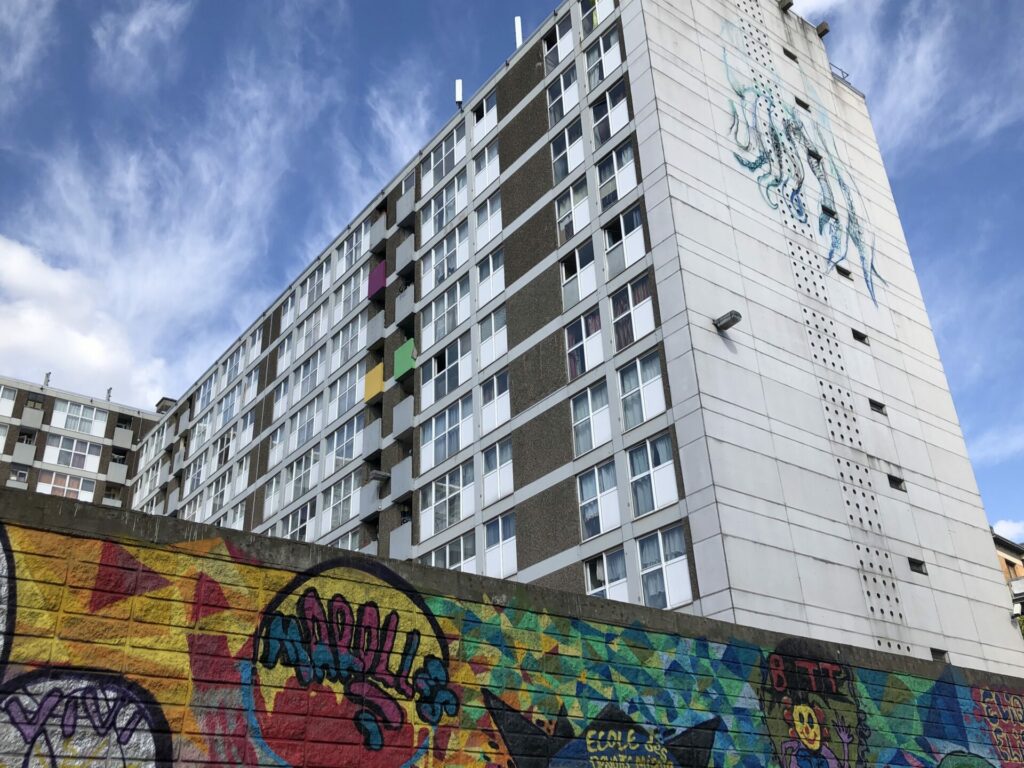Almost one in five people living in Belgium is at risk of poverty or social exclusion – but nowhere is the situation as precarious as in Brussels.
In Belgium, 2,150,000 people (18.6% of the total population) are at risk of poverty or social exclusion, the new poverty figures for 2023 published by Statbel on Thursday showed.
Many find themselves at monetary poverty risk (a disposable income below the increased poverty threshold of €1,450 for a single person and €3,045 for a family of four); being in low-intensity households (people of working age worked less than 20% of their potential in one year, affecting one in ten); and people suffering from severe material and social deprivation (6.1% of the population).
"But behind the national figures, there are large regional differences," Wendy Schelfaut, Statbel's spokesperson, stressed.
Brussels worse off
"For each of the core indicators, the situation is most precarious in the Brussels Capital Region," she noted. Here, 27.7% of the population was at risk of monetary poverty, much higher than the national level of 12.3%.
By comparison, Antwerp is the Flemish province that is worst off, where this figure is "just" 10%. Overall, the number of people at risk of monetary poverty in Flanders is much lower. Wallonia is somewhere in between, but has higher levels of poverty than the national level (excluding Walloon Brabant where this figure was 9.5%).
When it comes to the risk of poverty and social exclusion, the differences are even more stark. In Brussels, almost 38% of the population is at risk of finding itself in this situation, while in Flanders, the amounts range between 10% and 14.5%. In Wallonia, people in the provinces of Hainaut and Liège are most at risk.
Most worryingly, the share of the population suffering from severe housing deprivation was almost ten times higher than the national level (10.9% compared to 1.7%, respectively). This refers to a person living in an overcrowded dwelling, and if there is a leaking roof, a damp wall or floor, rotting woodwork, no bath/shower and indoor toilet, or it is too dark.
"These problems hardly occur in Flanders (0.4%) and Wallonia (0.9%), but are almost entirely located in Brussels," said Schelfaut. These are the latest set of figures published this week highlighting the dire housing situation in the capital. On Tuesday, an OECD report highlighted that the Brussels-Capital Region is suffering an "acute housing crisis" which unevenly affects the population.
On Wednesday, CIB figures showed that the supply of rental housing at cheaper, affordable prices is shrinking, resulting in living in the Capital Region becoming a financial challenge for many households. People in low-income households are particularly at risk of being excluded.
Changes in situations
The 2023 poverty threshold rose by €84 per month due to persistent inflation, which resulted in indexation of benefits and (civil servants') wages.
"However, the sharp rise in the poverty threshold did not lead to an increase in the monetary poverty risk, which is now 12.3% compared to 13.2% in 2022. Between 2022 and 2023, the situation improved for vulnerable groups, for example, the low-skilled (from 26.2% to 23.7%), single parents and their children (from 30.5% to 25.6%), renters (from 29.1% to 26.3%) and over-65s (from 17.9% to 15.8%).
Meanwhile, while the share of employed people at risk of poverty is usually smaller than the above groups, a notable increase is emerging here, rising from 3.6% in 2022 to 4.7% in 2023.
"The disposable income of employed people increased less than that of unemployed, retired and inactive people. While civil servants' wages and benefits were automatically indexed several times in 2022, private sector wages do not always follow the same pace," Schelfaut noted. "Specifically, delaying wage indexation meant that a share of workers fell below the poverty threshold."


